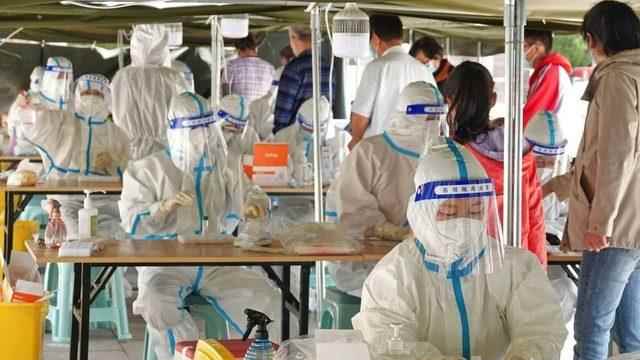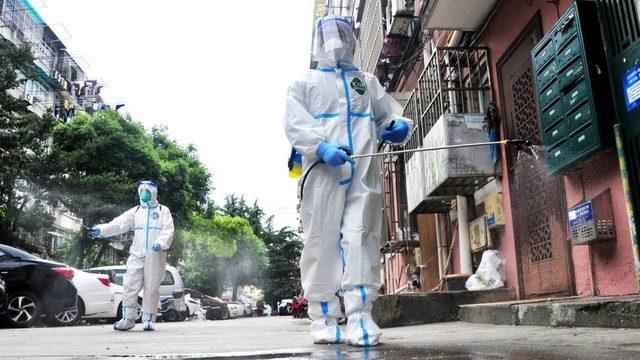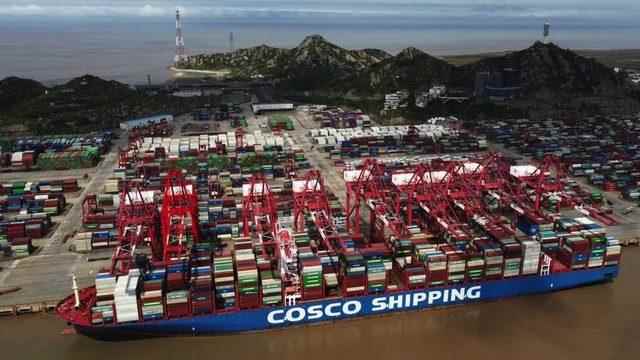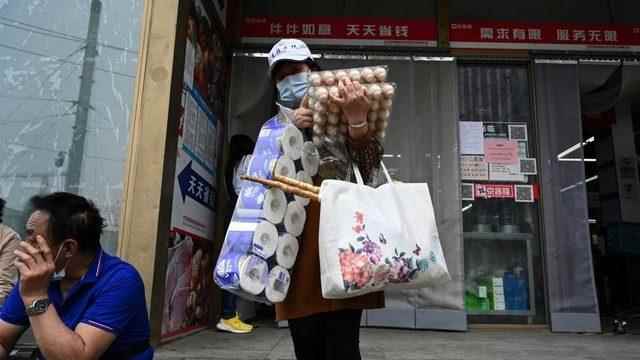In Beijing, the capital of China, the authorities asked almost all the residents of the city to take a Covid test, causing panic among the public. Beijingers are worried that a new shutdown is coming.
Millions of people still live under full or partial closure measures in China, which is one of the countries with the harshest policies against the Covid pandemic in the world.
The possibility of drastic measures that deeply affect daily life in Shanghai will also come to Beijing, creating fear.
So what exactly is going on in China?
What is known about mass testing in Beijing?
Authorities began conducting Covid tests Monday in Chaoyang, Beijing’s most densely populated area. The number of sites where these batches of tests took place increased to 12 on Saturday.
Millions of people are being tested three times a week to measure how far the Covid virus has spread in the past 7 days.
Close to 21 million people live in Beijing.
Why did the people panic?
This mandatory mass Covid testing in the capital has fueled concerns that a quarantine will be declared like in Shanghai, the country’s largest city.
Shanghai, with a population of 25 million, has been living under tight lockdowns since the beginning of April. The public is reportedly struggling with food shortages.
People confined to their homes find it difficult to order food and water. Many people are also waiting for the government’s parcels of vegetables, meat and eggs.
The people of the city are allowed to leave the house for a very limited time. In the meantime, in the videos shared on social media where people shop in panic, it is seen that the people almost loot the markets.
Videos of people confronting security personnel for not having enough food stocks are also circulating on social media.
Fearing that Beijing’s fate will be the same, residents of the capital flocked to supermarkets to stock up on food and other supplies.
BBC China Correspondent Stephen McDonell reported that to keep up with the increasing demand, food suppliers have increased their stocks of essential goods by almost 5 times.
“We’re panicking a little. It’s impossible not to panic,” an elderly Beijing resident told the BBC, pointing to market bags of hand soap, sanitizer, milk, vegetables and other essentials.
How common is Covid in China?

McDonell states that after 3.5 million people were tested in Chaoyang, only 33 more cases were registered, according to official data.
In Shanghai, the situation is different. Although the number of daily cases in the city is decreasing, the total number of Covid cases is still high.
Another 52 people died in the city, where 16 thousand cases were detected on Tuesday.
Beijing officials say Covid cases are under control and there will be no new closures in the city.
Shu Hejian, a spokesman for the Beijing local government, said, “At the moment, Beijing has done a good job in epidemiological research and control of transmission. Effective prevention and control measures have also been taken. New cases are also under control.”
However, these statements do not make everyone feel safe.
“I think Beijing will turn into Shanghai in about a week because we know how fast the Omicron variant is spreading,” said Economist Andy Shie, speaking to the BBC from Shanghai.
Andy Xie adds, “If we consider that what is done now is not enough to stop Covid, we have to assume that Beijing will be in the same situation as Shanghai in two weeks.”
What is China’s ‘Zero-Covid’ policy?

The aim of the Zero-Covid policy in China is not only to aim to keep cases below the critical upper limit, but to stop the virus from reproducing completely.
For this, some measures, such as testing and follow-up, isolation, closure and vaccination, are applied with or without drugs.
In the early days of the pandemic, this approach was adopted not only by the mainland, but also by Hong Kong, and many countries such as New Zealand also resorted to these policies.
However, today, many countries prefer to look for ways to live with the virus.
The challenges posed by this Chinese policy became more visible with the emergence of more sprawling variants such as Delta.
“Despite the negative effects on the economy and the unrest in society, the central government seems likely to insist on this policy,” said Howard Zhang, Editor of the BBC Chinese Service.
“Many experts say that the increasing number of cities declared closure in China is a sign that this policy has failed. According to some, Chinese President Xi Jinping insists on continuing this policy for political reasons.”
How will it affect the global economy?

According to the wealth management firm Nomura in China, 46 cities in the country are in full or partial shutdown. This may affect production and consumers in these cities.
The quarantine in Shanghai also led to a backlog of freight containers at the world’s largest port, as the restrictions negatively impacted transportation.
‘project44’, which monitors the supply chain data, noted that the freight containers that stop at the Shanghai port to be transported and distributed by the trucks wait an average of 12 days to be picked up from there.
Last year, 27 percent of exports from China were made through this port.
Considering how important it is for China to export goods needed for production in other countries, the rest of the world may also feel the effects.
According to global economist Ariane Curtis from Capital Economics, developing countries in Asia will be most affected if the disruptions caused by the new measures in China continue. Cambodia and Vietnam, which are highly dependent on China for the goods needed for the manufacturing sector, are at the top of these countries.
Developed countries such as the USA and Japan also need China for the continuation of the supply chain, especially in the electronics industry. It is also possible to experience disruptions in these sectors.
Curtis stresses that data on disruptions are “limited” for now, but that the spread of shutdowns to more cities in China could put “global supply chains” at risk.
The International Monetary Fund (IMF) also warned earlier this month that shutdowns in China could worsen the effects of the Russia-Ukraine war.
As a matter of fact, due to the war, the IMF reduced its global growth forecast from 4.4 percent to 3.6 percent. This rate was 6.1 percent last year.
It is stated that the economic growth in Asia, which was recorded as 6.5 percent last year, will remain at the level of 4.9 percent this year.
“Potential disruptions in supply chains and the accompanying geopolitical tensions continue to pose long-term risks to this region, which has developed over the past decades,” the IMF said in a statement.
